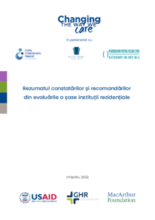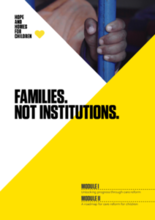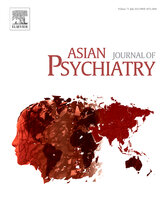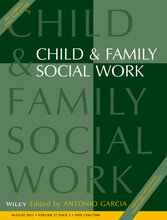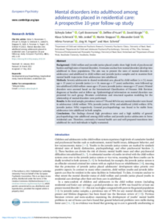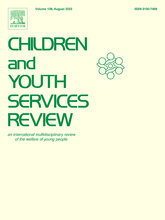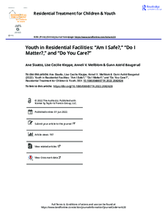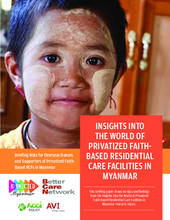Displaying 91 - 100 of 1510
În 2021-2022, CTWWC în parteneriat cu trei organizații ale societății civile: Keystone Moldova, Copil, Comunitate, Familie (CCF Moldova) și Asociația Parteneriate pentru Fiecare Copil (P4EC), a realizat o serie de cercetări la nivel național, inclusiv evaluarea complexă a șase instituții rezidențiale (IR).
This Hope and Homes for Children publication provides critical lessons learned, practical evidence and recommendations to support global, regional and national decision makers to build political will, strategies, policies, and target funding to transform care systems.
There is evidence that children in residential care institutions (RCI) have higher rates of psychological problems, suicide and criminal behaviour. There is only one study in Sri Lanka which has examined the psychological well-being of children in RCIs. This study aims to provide further evidence to formulate policies related to the mental health of institutionalized children in the local context.
Children placed in residential care are significantly over-represented in youth justice systems. Drawing on interviews and focus groups with service providers, this exploratory study examines practice factors that impact on the criminalization of this group of children across multiple services and systems, including in the residential care environment, police, lawyers, courts and youth justice systems, as well as multi-systems practice with this group in one Australian state.
Child welfare and juvenile justice placed youths show high levels of psychosocial burden and high rates of mental disorders. It remains unclear how mental disorders develop into adulthood in these populations. The aim of this study, based on adolescents in Swiss residential care, was to present the rates of mental disorders in adolescence and adulthood in child welfare and juvenile justice samples and to examine their mental health trajectories from adolescence into adulthood.
This paper presents a case study that discusses the lived experiences of two LGBTQA + young people who have been in out-of-home care in Australia, focusing particularly on the influence of relationships on their developing sexual identity.
Several youth facilities have devoted considerable resources to improving the quality of practice and the interest in understanding the safety needs of youth in residential care has grown. However, there is limited research that considers how youth in residential facilities themselves define and experience safety, what their safety concerns are, and how they would like systems and staff to respond to their needs. Therefore, this current study investigated youth perceptions of safety in residential facilities in Norway and their experiences of and reaction to staff behaviors and attitudes.
Individual studies suggest most children and youth in residential care centres (RCCs) have living parents, and parental death is not the primary antecedent to placement in residential care. The goal of the present review was to examine the literature to better understand the primary antecedents to placement in RCCs overall. One hundred thirty-two studies, including 60,683 children in 47 nations meet eligibility criteria for inclusion for the overarching review of antecedents of placement.
This briefing paper draws on data and findings from the Insights into the World of Privatized Faith-Based Residential Care Facilities in Myanmar research report.
This briefing paper draws on data and findings from the Insights into the World of Privatized Faith-Based Residential Care Facilities in Myanmar research report.

